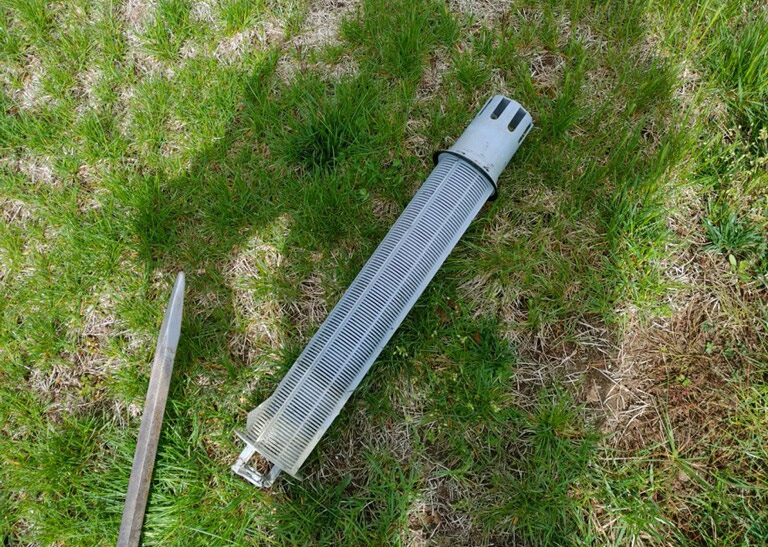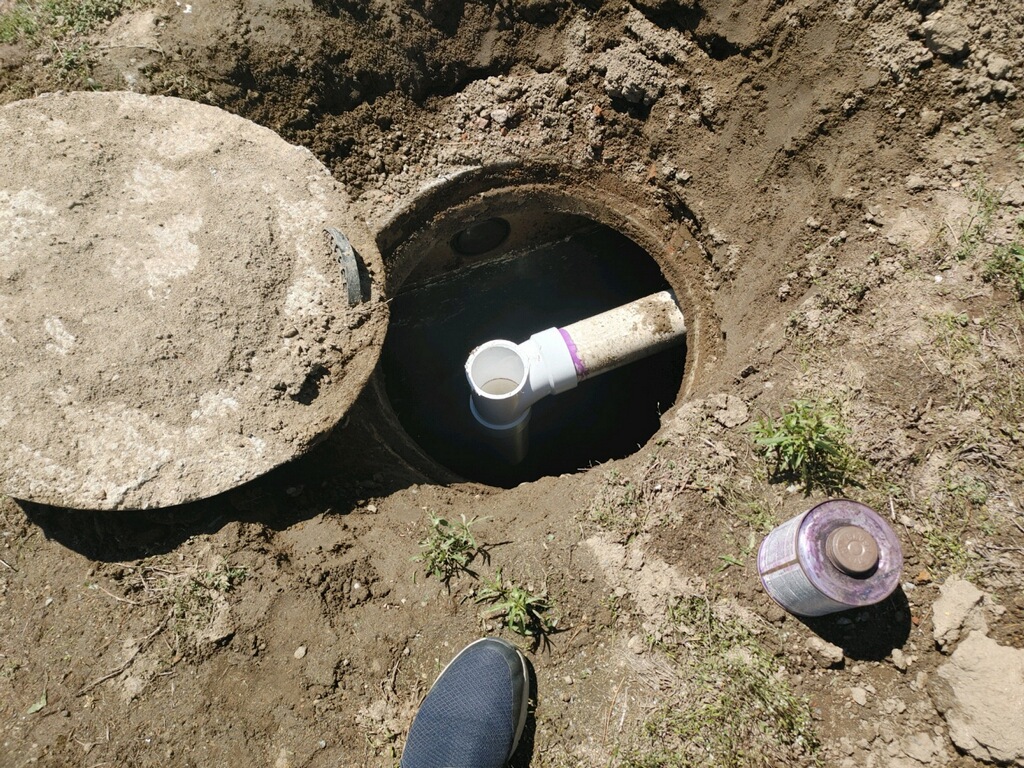Cleaning the effluent filter is one of the few times a homeowner may come into contact with the inner workings of their septic system. While the process may be intimidating or confusing, the right information can ensure you keep your system working efficiently and avoid costly repairs. Mike Devine, owner of Devine Septic, answers common questions about septic filters and how to clean them.
What is a septic tank filter?
Most septic tanks installed in the last few decades have filters, technically known as effluent filters or tank outlet filters. Positioned in the outlet of the septic tank, this filter helps prevent solid waste from getting into the leach field, potentially contaminating treated wastewater.

Do I need a septic tank filter?
It depends what kind of system you have and when it was made. While most modern systems have filters, the last generation was designed without this innovation. So your parents may not have had to clean the filter on their septic system because it might not have had one.
Do I need to clean my septic tank filter?
If your system has a filter, it was designed to keep most of the solids out of the field and let the effluent through. While not perfect, the filter does reduce the risk of clogs. And it can only work properly when it is clean. Sometimes the responsibility comes as a surprise to new homeowners. But if your system has a filter, it needs to be cleaned. “If Mike hadn’t told me about it I would have no idea,” admits Devine customer Beth Thomas whose family moved into a home with a septic system several years ago.
How do I find my septic tank filter to clean it?
Most septic systems installed since the turn of the century have filters. These systems most likely include between one and three covers that are level with the surface of the ground. If there is one cover you can access, that’s the cover with the filter. If there are several covers you can access, have someone flush the toilet. In the newest systems, when you lift the cover(s) you should find PVC pipe(s). (You may encounter a second cover when you open your tank. If this is the case, try to remove the second cover as well.)
When you flush the toilet, wherever you see the water coming into the tank first, this is the inlet side of the tank. This is NOT the pipe where the filter is located. It should be located in the outlet pipe of the tank. The pipe you can look through has no filter. The one you can’t see all the way through because there’s something inside…that’s the filter in there. The handle might be red, blue, yellow or gray.

How do I clean my septic filter?
- First, remove the filter. Reach down, grab it and pull it out.
- Then spray the filter with a garden hose. You need to be able to see through it when you’re done cleaning. If you don’t clean it entirely, you defeat the purpose.
- Finally, replace the filter. Some of them have certain ways to go back in. For example, If yours has an arrow pointing at the top and it says “outlet this way,” you have to point the arrow in the same direction when you replace it.
What happens if I don’t clean my septic filter?
Maybe nothing. But maybe a lot. If you have a septic tank filter, and you get your system pumped we will clean it during servicing. So depending on when it was last pumped and how much use your system regularly gets, you may not necessarily need to clean it right away.
However, if your filter does become clogged, eventually everything backs up. So you could run a load of laundry, and have sewage coming out of the overflow. While the short term inconvenience and mess of such an event may seem daunting in and of itself, the greater risk lies in solid waste backing up into the pipes and remaining even after the filter and the tank are cleaned. These obstructions can clog your drains and require professional help to remove.
How often should I clean my septic filter?
You should clean your filter every three to twelve months, depending on how many people live in your house. See the chart above for reference.. Cleaning your filter is just one part of regular septic maintenance that can help extend the life of your system.
